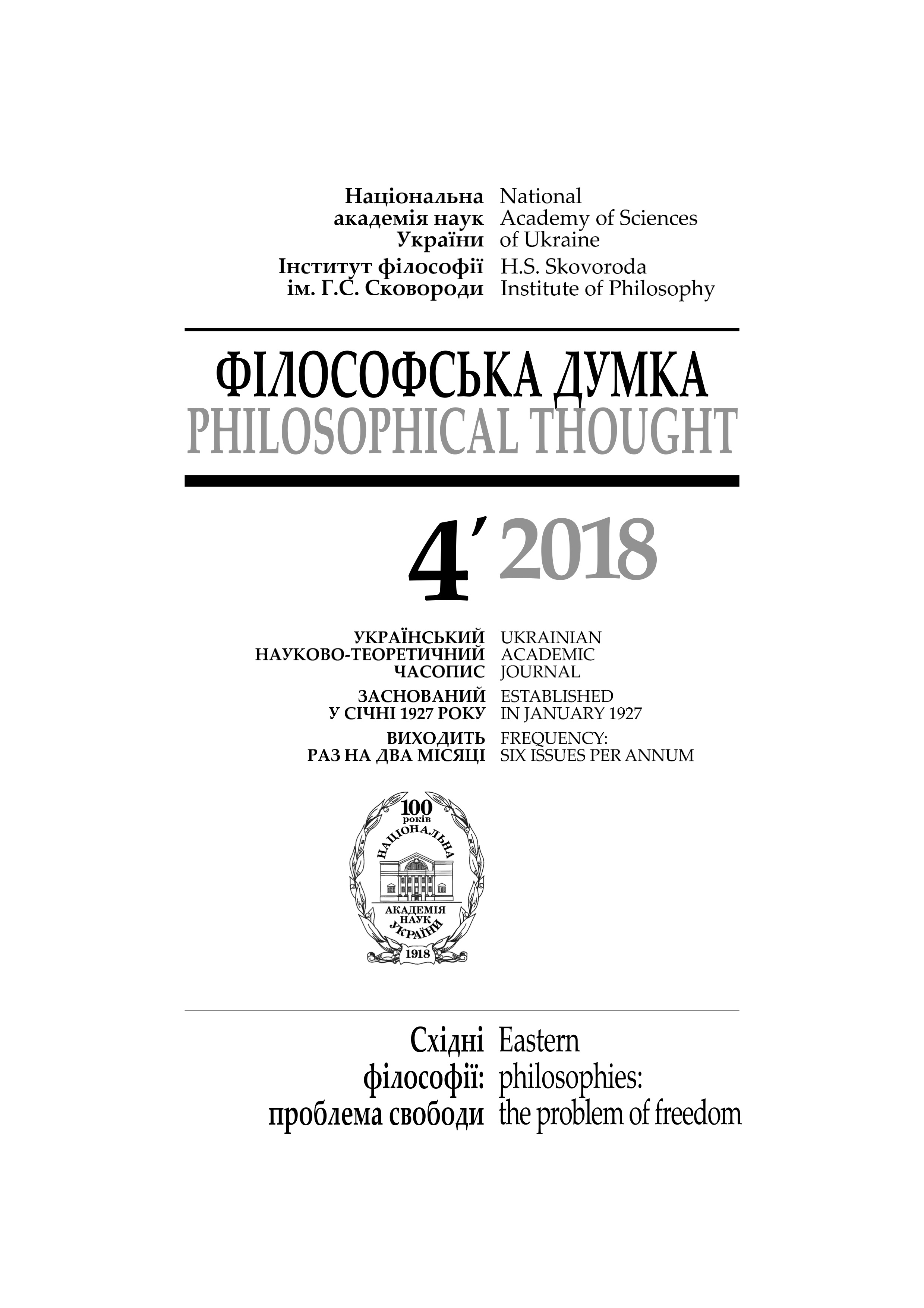Concepts of Freedom in Philoso- phy of Sri Aurobindo
Articles: The History of Philosophy
Keywords:
national liberation, social liberation, history, evolution, human cycleAbstract
The article is devoted to the analysis of philosophy of freedom, offered by the Indian phi- losopher Sri Aurobindo. In philosophy of Sri Aurobindo it is possible to distinguish three series of problems and three complexes of ideas. First and foremost it is his philosophy of national and social liberation of India, Asia, and the whole world. This philosophy is rebel- lious, revolutionary, partly even frankly military. In the second place it is his philosophy of internal, spiritual, introspective release from mental limitations, power of senses and pow- er of material determinism. This philosophy is closely related to the internal introversion, yoga and meditation practices. And, finally, it is his original philosophy of history. He cor- rected and specified the articles from the philosophy of history in the last period of his life, in the forties of the 20th century. These articles entered his book «The human cycle».
The historiosophic constructions of Sri Aurobindo are interesting because he consid- ers in them s the individual and universal evolution from the sociological and psychological point of view. Aurobindo examines in an evolutional context the cycles of the history of human societies, the modern state and prospects of human community.
References
Satprem (1989). Sri Aurobindo or The Adventure of Consciousness. [In Russian] Leningrad: PH of the Leningrad university. [=Сатпрем 1989]
Sri Aurobindo Ghose (1992). The Human Cycle. [In Russian] Kazan': New Age. [= Шри Ауробиндо Гхош 1992]
Teilhard de Chardin, P. (1987). The Phenomenon of Man. [In Russian] Moscow: Science. [= Тейяр де Шарден 1987]
Downloads
-
PDF (Українська)
Downloads: 289
Published
How to Cite
Issue
Section
License
Authors who publish with this journal agree to the following terms:
- Authors retain copyright and grant the journal right of first publication.
- Authors are able to enter into separate, additional contractual arrangements for the non-exclusive distribution of the journal's published version of the work (e.g., post it to an institutional repository or publish it in a book), with an acknowledgement of its initial publication in this journal.
- Authors are permitted and encouraged to post their work online (e.g., in institutional repositories or on their website) prior to and during the submission process, as it can lead to productive exchanges, as well as earlier and greater citation of published work (See The Effect of Open Access).


